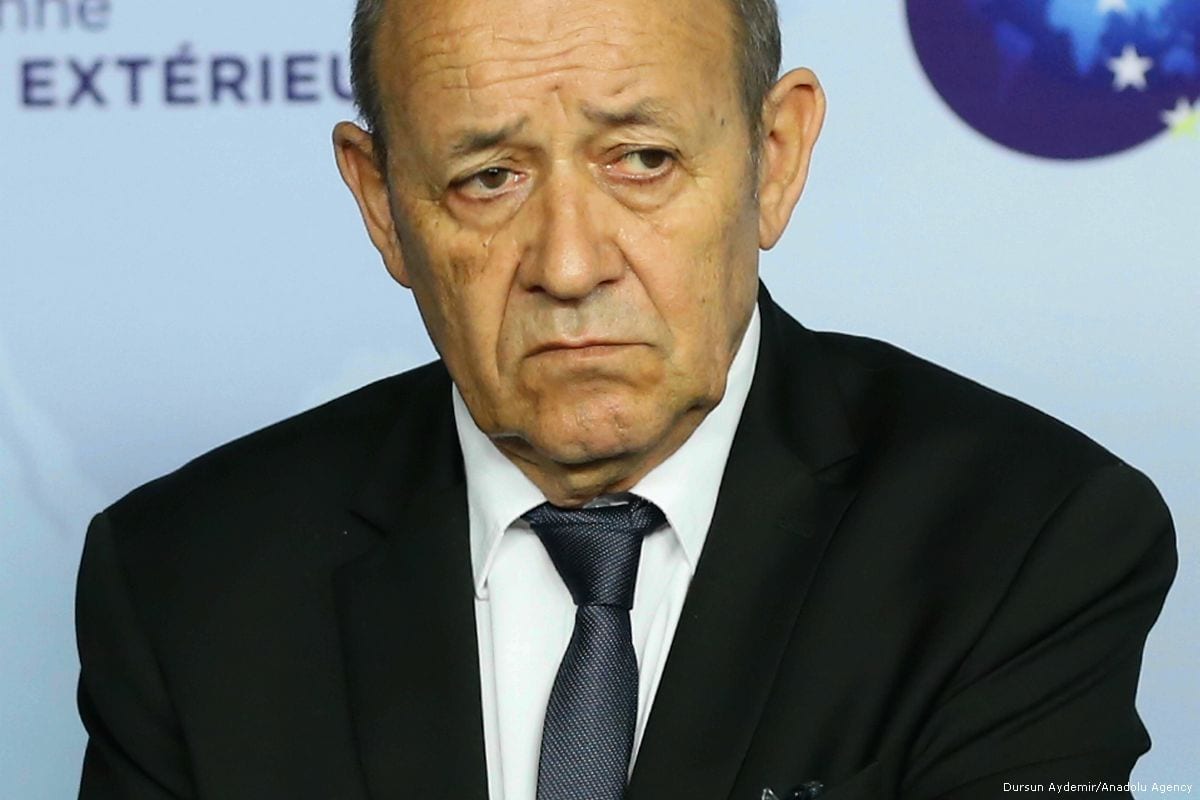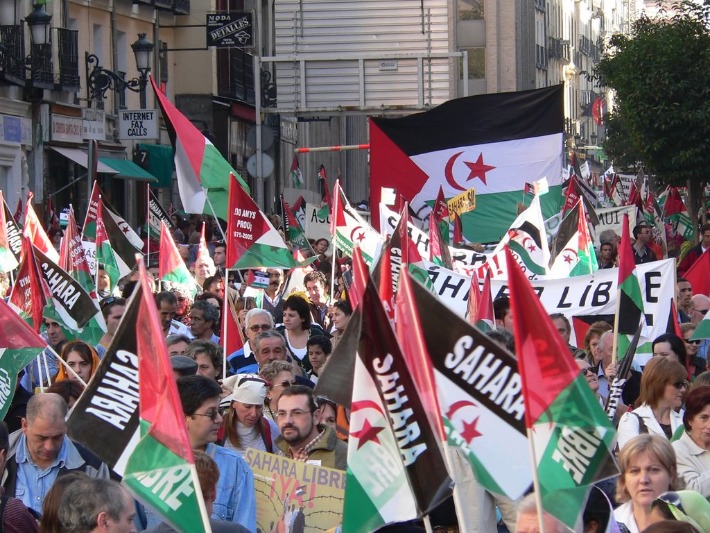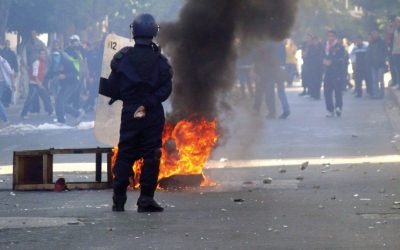Historical Background
The historical background of Algeria and Morocco is deeply intertwined with their rich and diverse past, shaped by ancient civilizations, conquests, and colonial influences. Both countries have experienced significant events that have shaped their national identities and cultural landscapes, from Arab and Berber roots to periods of French colonization and independence struggles. Understanding this history provides insight into the complex relationship and cultural connections between Algeria and Morocco today.
Pre-Colonial Era
The pre-colonial era of Algeria and Morocco was marked by rich cultural development and the establishment of various indigenous kingdoms and empires that greatly influenced the region’s history. During this period, the area was characterized by diverse civilizations, trade routes, and political entities that laid the foundation for their later colonial histories.
- The region of Algeria was home to the Numidian Kingdom before becoming part of the Roman Empire, fostering a mix of Berber and Phoenician influences.
- Morocco, on the other hand, saw the rise of several powerful Berber dynasties such as the Mauri and later the Idrisid dynasty, which unified parts of the region and contributed to its Islamic identity.
- Trade across the Sahara and Mediterranean connected these lands to broader networks, facilitating cultural exchanges and economic prosperity.
- The spread of Islam during the 7th and 8th centuries significantly impacted societal structures, art, and governance in both Algeria and Morocco.
- Pre-colonial societies in both territories were marked by decentralized political systems, with local rulers and tribal confederations playing crucial roles in regional stability and cultural preservation.
Colonial Period and Independence Movements
Algeria and Morocco, located in North Africa, have rich historical backgrounds shaped by ancient civilizations, Islamic empires, and colonial influences. The region was historically inhabited by Berber tribes and saw the rise of powerful empires such as the Carthaginian and Roman periods. During the Middle Ages, Arab-Muslim culture spread across the area, contributing to the development of distinct national identities.
During the colonial period, both countries experienced European domination, but their experiences differed in significant ways. Algeria was colonized by France in 1830 and remained under French rule until 1962, experiencing extensive resistance and violent struggles for independence. Morocco, on the other hand, was a French protectorate from 1912 to 1956, with a relatively less violent path to independence thanks to diplomatic negotiations, although it also faced internal and external pressures.
The pursuit of independence was driven by strong nationalist movements in both nations. Algeria’s Front de Libération Nationale (FLN) led a brutal war against French colonial forces, culminating in independence in 1962 after a protracted conflict marked by significant sacrifice and suffering. Morocco’s independence was achieved through negotiations and diplomatic efforts, resulting in independence from France in 1956. These movements laid the groundwork for the modern political landscapes of both countries and fostered a sense of national identity rooted in their colonial histories and resistance efforts.
Post-Independence Development
Algeria and Morocco, both located in North Africa, have rich historical backgrounds shaped by indigenous Berber cultures, Arab conquests, and centuries of colonial influence. Algeria’s history includes its Pharaonic roots, subsequent Arab-Islamic dominance, and French colonization in the 19th century, which culminated in a fierce struggle for independence, achieved in 1962. Morocco, with its ancient trading cities and Islamic dynasties, was a French and Spanish protectorate until it gained independence in 1956. Post-independence development in both countries reflects their efforts to modernize their economies and establish national identities. Algeria focused on state-led industrialization and resource management, particularly in oil and gas sectors, while Morocco emphasized agricultural development, tourism, and infrastructure expansion. Despite challenges, including regional conflicts and political changes, both nations have continued to evolve, striving for economic stability and regional influence in North Africa.
Political Systems and Governance
Political systems and governance play a crucial role in shaping the development and stability of nations. In the context of Algeria and Morocco, both countries exhibit unique political structures influenced by their histories, culture, and social dynamics. Understanding these governance frameworks provides insight into their domestic policies, regional interactions, and the broader political landscape of North Africa.
Algerian Political Structure
Algeria’s political system is a semi-presidential republic characterized by a strong executive branch led by the President, who is both head of state and commander-in-chief, and a Prime Minister responsible for running the government. The Algerian Parliament consists of two chambers: the National People’s Assembly and the Council of the Nation, which play roles in legislative processes. The country has experienced periods of political stability mixed with challenges such as protests and demands for greater democratic reforms.
Morocco’s governance structure is a constitutional monarchy with a parliamentary system. The King of Morocco holds significant authority, including executive, legislative, and religious powers, but the country also has elected parliamentary institutions, including the House of Representatives and the House of Councillors. The Prime Minister, appointed by the King, oversees the government’s day-to-day operations. Morocco’s unique governance combines traditional monarchical authority with modern democratic institutions, allowing for a degree of political participation and reform.
Moroccan Political Structure
The political systems and governance structures of Morocco and Algeria are key components of their national identities and regional influence. Both countries have distinct political frameworks shaped by their histories, cultures, and socio-economic contexts. Understanding these structures provides insight into their domestic policies and regional relationships.
Morocco operates under a constitutional monarchy, where the King holds significant executive and legislative powers. The Moroccan political system includes an elected Parliament, consisting of the House of Representatives and the House of Councillors, and an elected Prime Minister who runs the government. The King retains authority over key national matters, including the military, foreign policy, and religious affairs, while also overseeing the judiciary and other state institutions.
In contrast, Algeria functions as a semi-presidential republic with a strong centralized government. The President of Algeria is both the head of state and the commander-in-chief of the armed forces, holding substantial executive authority. The Algerian political framework includes a bicameral Parliament, which comprises the Council of the Nation and the People’s National Assembly. The Prime Minister and the Council of Ministers assist in government administration, but the President wields considerable influence over policy and political stability.
- Moroccan Political Structure:
- Constitutional monarchy with the King as the central figure
- Parliament consisting of two houses: the House of Representatives and the House of Councillors
- Prime Minister and Cabinet responsible for daily governance
- Legal and judicial institutions under royal supervision
- Algerian Political Structure:
- Semi-presidential republic with a President as the head of state
- Bicameral Parliament: Council of the Nation and People’s National Assembly
- Prime Minister and Council of Ministers managing government operations
- Strong executive authority centralized in the presidency
Both nations face challenges related to political reforms, regional stability, and internal governance. Morocco emphasizes stability through monarchy-led reforms, while Algeria grapples with political transition issues and maintaining control over its political institutions. These governance structures significantly influence their regional relations, especially with each other and Western countries, shaping the political landscape of North Africa.

Recent Political Reforms
Algeria and Morocco have experienced significant political reforms aimed at strengthening governance and addressing contemporary challenges. In Algeria, recent reforms include amendments to the constitution to enhance the independence of the judiciary, promote civil liberties, and establish a more transparent electoral process. These changes are part of efforts to reduce centralized power and foster democratic development. Morocco has also undertaken reforms, notably introducing a new constitution in 2011 that expanded the powers of the Prime Minister, increased parliamentary authority, and safeguarded cultural and civil rights. Both countries are navigating the balance between maintaining stability and implementing reforms that promote political participation and accountability. These efforts reflect a broader regional trend towards governance enhancement and adaptability in response to internal and external pressures.
Economic Overview
The economic landscape of Algeria and Morocco offers a fascinating comparison, reflecting diverse development paths and resource endowments. Both countries play significant roles in North Africa’s regional economy, yet their economic structures, growth prospects, and challenges differ markedly. Understanding their economic overviews provides insight into their potential for future growth and regional influence.
Major Industries and Sectors
Algeria and Morocco are two North African countries with distinct economic profiles, each playing a significant role in the region’s development. Algeria’s economy is heavily reliant on hydrocarbons, with oil and natural gas accounting for the majority of its revenue, making it one of the world’s leading energy exporters. The government is working to diversify its economy by investing in sectors such as agriculture, construction, and manufacturing to reduce dependence on fossil fuels. Morocco, on the other hand, has a more diversified economy with a strong emphasis on agriculture, tourism, manufacturing, and services. It has developed a vibrant industrial sector, especially in automotive and aerospace industries, and has established free trade zones to attract foreign investment. Both nations face challenges related to economic diversification, unemployment, and regional disparities, but they continue to pursue reforms to foster sustainable growth and economic stability in the region.
Trade Relations and Agreements
Algeria and Morocco are two neighboring North African countries with distinct economic landscapes, trade relations, and regional roles. While Algeria’s economy is heavily reliant on hydrocarbons, primarily natural gas and oil, Morocco has a more diversified economy including agriculture, manufacturing, and services sectors. Both countries play significant roles within the Maghreb region, influencing regional trade dynamics.
Economic Overview
- Algeria’s economy is largely driven by its vast natural resources, with hydrocarbons accounting for over 95% of export earnings and a significant portion of government revenue.
- Morocco maintains a more diversified economic structure, with key industries including agriculture, phosphate mining, textile production, and tourism.
- Unemployment remains a challenge in both nations, particularly among youth populations, impacting economic growth prospects.
- Recent efforts in Morocco focus on economic reforms aimed at attracting foreign investment and boosting industrialization, whereas Algeria is exploring economic diversification beyond hydrocarbons.
Trade Relations
- Algeria’s main exports include natural gas, oil, and petrochemical products, primarily trading with Europe, China, and some African nations.
- Morocco’s export portfolio features agricultural products, textiles, automotive parts, and phosphates, with key trading partners including the European Union, the United States, and regional neighbors.
- Both countries face regional trade limitations; Algeria has historically been cautious in regional integration, whereas Morocco actively participates in trade agreements beyond Africa.
- Trade disputes and political tensions have occasionally impacted economic relations, especially concerning territorial and political issues.

Trade Agreements
- Morocco has signed numerous free trade agreements, including agreements with the European Union, the United States, and several African nations, aiming to expand market access and attract investments.
- Algeria is part of regional trade frameworks such as the Arab Maghreb Union, but it has not yet signed comprehensive free trade agreements with major partners like the European Union.
- Morocco’s trade policy emphasizes attracting foreign direct investment and integrating into global value chains, especially in manufacturing and automotive sectors.
- Algeria’s focus remains on leveraging its natural resource wealth, with ongoing efforts to improve trade infrastructure and diversify export markets.
Economic Challenges and Opportunities
Algeria and Morocco, two North African nations, have diverse economic landscapes shaped by their historical, geographical, and political contexts. Algeria’s economy is heavily reliant on hydrocarbons, particularly oil and natural gas, which account for a significant portion of government revenue and exports. Morocco, on the other hand, has a more diversified economy, with sectors such as agriculture, manufacturing, and tourism contributing notably to its GDP. Both countries are striving to modernize and expand their economic bases to foster sustainable growth.
Algeria faces notable economic challenges, primarily due to its dependence on fossil fuel revenues, which exposes it to volatility in global energy markets. Economic diversification remains a crucial goal to reduce vulnerability, but structural reforms have been slow. Additionally, unemployment, especially among youth, and a large informal sector hinder economic progress. Morocco grapples with challenges related to economic inequality, youth unemployment, and regional disparities. While its diversified economy offers resilience, it still faces obstacles such as attracting investment and improving infrastructure. Both nations have opportunities to capitalize on regional integration, renewable energy development, and tourism to enhance economic growth.
Geography and Environment
Geography and environment play a crucial role in shaping the characteristics and lifestyles of countries. Algeria and Morocco, located in North Africa, feature diverse landscapes ranging from vast deserts and rugged mountains to Mediterranean coastlines. Understanding their geographic features and environmental conditions provides insights into their history, culture, and regional significance.
Physical Features and Landscapes
Algeria and Morocco are two North African countries characterized by diverse physical features and landscapes. Algeria, the largest country in Africa, features vast Sahara Desert regions, rugged mountain ranges such as the Atlas Mountains, and fertile plains along the Mediterranean coast. The Sahara covers much of southern Algeria, creating a hot, arid environment with impressive sand dunes and rocky plateaus. The Tell Atlas mountain range runs parallel to the coast, contributing to a varied terrain with fertile valleys and important river systems.
Morocco, located along the Atlantic Ocean and Mediterranean Sea, boasts a diverse geography that includes the rugged Atlas Mountains, the expansive Sahara Desert, and fertile coastal plains. The Atlas Mountains in Morocco extend across the country, shaping the climate and supporting diverse ecosystems. The interior regions of Morocco are characterized by arid deserts, while the coastal areas enjoy a more temperate climate with lush landscapes. The country’s rich landscape also features the Rif Mountains in the north and the Sahara Desert in the south, making Morocco uniquely varied in physical features.
Climate and Environmental Issues
Algeria and Morocco, two neighboring countries in North Africa, face unique challenges related to their geography and environment. Algeria is characterized by vast deserts, particularly the Sahara Desert, which covers much of the southern region, and mountainous areas such as the Atlas Mountains in the north. Morocco also features diverse geography, including mountain ranges like the Atlas and Rif Mountains, as well as extensive coastal plains along the Atlantic and Mediterranean Seas. This varied landscape influences their climate and environmental issues.
Both countries experience a predominantly Mediterranean climate along the coast, with hot, dry summers and mild, wetter winters. In the interior, especially the desert regions, the climate is arid and characterized by extreme temperature variations. Climate change poses significant threats, including rising temperatures, droughts, and reduced rainfall, which threaten water resources, agriculture, and biodiversity. Desertification is a pressing concern, particularly in Algeria, where expanding deserts impact local economies and communities.
Environmental issues in Algeria and Morocco also include deforestation, overgrazing, and pollution. Urbanization and infrastructure development contribute to the degradation of natural habitats. Efforts are underway in both countries to promote sustainable development, renewable energy projects, and conservation initiatives to mitigate environmental impact and adapt to changing climate conditions, ensuring the protection of their rich natural landscapes for future generations.
Natural Resources
Algeria and Morocco are two North African countries with distinct geographical features and rich natural resources that significantly influence their economies and environments. Algeria is characterized by vast deserts, notably the Sahara, which covers much of its territory, along with mountain ranges such as the Atlas Mountains. Its landscape includes extensive plains and coastal regions along the Mediterranean Sea. Morocco, on the other hand, features a diverse topography that includes the Atlantic and Mediterranean coastlines, the Atlas Mountains, and parts of the Sahara Desert. These geographical features contribute to varied climates and ecosystems across both nations.
Natural resources play a crucial role in Algeria and Morocco. Algeria possesses abundant hydrocarbon resources, being one of Africa’s leading oil and natural gas producers, which form the backbone of its economy. Additionally, Algeria has mineral resources such as iron ore and phosphates. Morocco’s natural resources include phosphates (it is one of the world’s largest producers), lead, zinc, and besides, it has a rich agricultural sector thanks to fertile plains and favorable climatic conditions. Both countries face environmental challenges related to resource exploitation, such as desertification, water scarcity, and the impact of mining activities, which threaten their ecosystems and sustainable development.
Cultural Heritage and Society
Cultural heritage plays a vital role in shaping the identity and societal values of countries around the world. In Algeria and Morocco, this heritage is deeply rooted in their rich history, diverse traditions, and vibrant cultural practices. These nations showcase a blend of ancient traditions and modern influences that continue to influence their societies today, fostering a sense of pride and continuity that binds communities together.
Languages and Ethnic Groups
Cultural heritage and society in Algeria and Morocco are deeply rooted in their rich histories, diverse populations, and vibrant traditions. Both countries boast a blend of indigenous Berber cultures, Arab influences, and remnants of French colonial legacy, creating a unique multicultural landscape. Languages play a crucial role in shaping their identities, with Arabic and Berber (Amazigh) recognized as official languages, alongside French in many contexts. In Algeria, the preservation of Berber languages and culture has gained prominence, reflecting the country’s commitment to recognizing its indigenous roots. Morocco similarly celebrates its linguistic diversity, with Arabic, Berber, and French used across various social and official domains. Ethnic groups in both nations exhibit unique customs, dress, and oral traditions that continue to influence contemporary society. The coexistence and interaction of these languages and ethnic groups foster a vibrant cultural mosaic, which remains central to national identity and societal cohesion in both Algeria and Morocco.
Religious Influences and Practices
Cultural heritage and society in Algeria and Morocco are deeply interconnected, reflecting rich histories shaped by indigenous Berber roots, Arab influences, and centuries of interaction with various civilizations. These nations preserve their unique traditions, languages, and customs that continue to influence daily life, social structures, and national identity.
Religious influences, predominantly Islam, play a central role in shaping societal values, practices, and cultural expressions in both countries. Islamic traditions influence aspects of life such as festivals, clothing, and community rituals, fostering a sense of unity and shared identity among their populations. Despite this common religious foundation, local practices and interpretations add diverse dimensions to their religious landscapes.
Religious sites like mosques and shrines are also significant cultural landmarks, often serving as centers for community gathering and cultural preservation. In both Algeria and Morocco, religious festivals such as Ramadan and Eid are celebrated with elaborate customs that blend religious observance with traditional cultural elements, reinforcing societal cohesion and transmitting heritage across generations.
Traditional Arts, Music, and Cuisine
Cultural heritage and society play a vital role in shaping the identity of countries like Algeria and Morocco, reflecting centuries of history, traditions, and social customs. Both nations have preserved rich heritages through traditional arts, music, and cuisine that continue to influence their modern cultures.
In Algeria, traditional arts such as intricate pottery, embroidery, and woodwork showcase the craftsmanship passed down through generations. Algerian music is diverse, with genres like Rai, which blends traditional Bedouin, Andalusian, and folk elements, resonating deeply with contemporary audiences. The country’s cuisine features hearty dishes like couscous, tajine, and baklava, emphasizing the use of spices, grains, and fresh ingredients that reflect its Arab, Berber, and French influences.
Morocco boasts a vibrant cultural tapestry woven from Arab, Berber, African, and European influences. Traditional arts such as carpet weaving, metalwork, and pottery are renowned globally, often adorned with geometric patterns and vibrant colors. Moroccan music includes styles like Gnawa, Andalusian classical, and folk tunes that often accompany social and religious gatherings. Its cuisine is famous for dishes like tagine, Moroccan mint tea, and pastilla, showcasing aromatic spices, preserved fruits, and fresh herbs that highlight the country’s culinary ingenuity.
Both Algeria and Morocco celebrate their cultural heritages through festivals, dance, music performances, and culinary traditions, fostering a sense of community and national pride that continues to thrive amidst modernity.
Diplomatic Relations and Regional Influence
Diplomatic relations and regional influence play a crucial role in shaping the geopolitical landscape of North Africa. Algeria and Morocco, two neighboring countries with deep historical ties and complex political dynamics, exemplify how regional diplomacy impacts stability and cooperation in the region. Their interactions are shaped by issues such as territorial disputes, economic interests, and diplomatic strategies, influencing not only their bilateral relationship but also the broader regional stability.
Algeria’s International Engagements
Algeria’s diplomatic relations and regional influence are significant factors shaping North African geopolitics, particularly in its interactions with Morocco. As a prominent actor in the region, Algeria seeks to assert its influence through diplomatic channels, economic partnerships, and regional cooperation initiatives. The relationship between Algeria and Morocco has historically been complex, marked by territorial disputes such as the Western Sahara issue, which has impacted their diplomatic engagement. Algeria supports the Polisario Front’s pursuit of independence for Western Sahara, positioning itself as a regional supporter of self-determination, while Morocco claims sovereignty over the territory. This disagreement has contributed to strained diplomatic ties, border closures, and regional tensions. Despite these challenges, both nations recognize their importance in regional stability and have engaged in various diplomatic efforts to mitigate conflicts. Algeria’s international engagements extend beyond North Africa, encompassing relations with major global powers and participation in multilateral organizations such as the Arab League and the African Union, where it promotes regional solidarity and economic integration. Overall, Algeria’s pursuit of regional influence is characterized by a strategic focus on sovereignty, regional leadership, and active participation in diplomatic initiatives across Africa and beyond.
Morocco’s Regional Diplomacy
Morocco’s regional diplomacy is characterized by a strategic effort to enhance its influence across North Africa and the broader region. Through active engagement in regional organizations such as the Arab Maghreb Union and the African Union, Morocco seeks to assert its presence and foster economic and political ties. The dispute with Algeria over Western Sahara remains a central factor shaping Morocco’s diplomatic approach, prompting efforts to garner international support and recognition for its position. Morocco also leverages its diplomatic relations to promote economic development, cultural ties, and stability in the region, positioning itself as a key player in North African geopolitics. Conversely, Algeria views Morocco’s regional ambitions with suspicion, leading to a complex and often tense diplomatic relationship that influences regional stability and cooperation efforts.
Border and Territorial Disputes
Algeria and Morocco share a complex history characterized by diplomatic relations and regional influence that significantly impact North Africa. These two nations have longstanding geopolitical tensions rooted in historical grievances, territorial claims, and differing visions for regional leadership. While Algeria often advocates for a unified regional approach to North African development, Morocco emphasizes economic integration and regional stability, leading to competing influences within the Maghreb.
Border and territorial disputes notably center around Western Sahara, a territory claimed by both Morocco and the Polisario Front, supported by Algeria. Morocco administers most of Western Sahara, considering it part of its sovereign territory, whereas Algeria supports the Sahrawi people’s right to independence and provides refuge to Polisario fighters. This dispute continuously strains diplomatic relations, often preventing regional cooperation and contributing to broader tensions in North Africa.
Despite efforts at reconciliation and diplomacy, the rivalry persists, fueled by Arab nationalism, economic interests, and security concerns. The dispute over Western Sahara remains a core issue, with unresolved diplomatic friction impacting regional stability and influencing the strategic alignments of neighboring countries. As both nations pursue regional influence, their bilateral relationship continues to shape North Africa’s geopolitical landscape, highlighting the importance of resolving territorial conflicts to foster lasting peace and cooperation.
Security and Defense
Security and defense are critical aspects of national sovereignty and stability, especially in regions marked by complex geopolitical relationships. In North Africa, Algeria and Morocco have long-standing concerns related to regional security, border disputes, and counterterrorism efforts. Understanding the strategies and challenges faced by these two nations provides insight into their efforts to maintain peace and safeguard their sovereignty amid evolving regional dynamics.
Military Capabilities and Alliances
Algeria and Morocco are two North African countries with significant military capabilities and strategic alliances that influence regional security dynamics. Both nations prioritize their defense strategies to safeguard sovereignty and regional stability, often focusing on military modernization and regional partnerships.
- Algeria’s Military Capabilities: Algeria maintains one of the strongest armed forces in Africa, featuring a sizable army, advanced air force, and navy. It invests heavily in defense procurement, including the acquisition of Russian and Chinese weapon systems, to enhance security against internal and external threats.
- Morocco’s Military Strength: Morocco’s military is notably equipped with modern equipment, largely procured from the United States and Europe. The Moroccan Royal Armed Forces focus on maintaining regional influence and defense readiness, especially regarding the Western Sahara dispute.
- Security and Defense Alliances: Algeria generally pursues a policy of self-reliance but maintains regional security collaborations, including with the African Union and Arab defense forums. Morocco is a key US ally in the region, benefiting from Defense Cooperation Agreements, and participates actively in NATO partnerships, enhancing its military interoperability.
- Regional Tensions and Military Balance: Ongoing territorial disputes and political rivalries influence military postures. The military capabilities of both countries serve as deterrents, but also contribute to an arms race that impacts regional stability.
- Future Outlook: Both nations are investing in military modernization and seeking strategic alliances to bolster their security. Cooperation and potential conflicts remain central to their defense policies, shaping the future military landscape in North Africa.
Counter-Terrorism Efforts
Both Algeria and Morocco have prioritized security and defense strategies to counteract internal and external threats, including terrorism. Algeria, facing a history of domestic insurgencies, has developed a comprehensive counter-terrorism approach that includes strong military intervention, intelligence cooperation, and regional collaboration. The country has established specialized units proven effective against extremist groups, alongside extensive efforts to counter radicalization and secure borders. Morocco, on the other hand, has focused on intelligence-led operations, strict border controls, and dismantling terrorist networks, particularly those linked to extremism inspired by foreign ideologies. Both nations also cooperate regionally and internationally to share intelligence and improve their counter-terrorism capabilities, recognizing the importance of collective security in combating the persistent threat of terrorism in North Africa and beyond.
Internal Security Challenges
Both Algeria and Morocco face significant internal security challenges that impact their stability and development. In Algeria, issues such as insurgent groups in the Sahara region, terrorism, and organized crime pose persistent threats to national security. The remnants of past conflicts and regional instability contribute to ongoing security concerns, requiring robust counter-terrorism efforts and security reforms.
Morocco faces its own set of internal security challenges, including regional unrest in Western Sahara, domestic political stability, and the threat of extremist groups. The government has focused on maintaining control over territories and countering radicalization, often involving increased security measures and intelligence operations. Both nations also grapple with issues related to social unrest and the need for governance reforms to address socio-economic disparities and maintain internal stability.
Overall, Algeria and Morocco are compelled to balance security enforcement with efforts to foster social cohesion, economic progress, and regional stability, all while addressing diverse and evolving internal security threats.
Future Outlook and Strategic Partnerships
The future outlook for Algeria and Morocco is shaped by their evolving economic landscapes and regional influence, presenting both opportunities and challenges. Strategic partnerships will play a crucial role in fostering sustainable growth, enhancing trade, and promoting stability within North Africa. As these nations navigate shifting geopolitical dynamics, strengthening collaborations will be essential for unlocking their full potential and ensuring long-term prosperity.
Economic and Political Trends
The future outlook for Algeria and Morocco is shaped by a complex interplay of economic growth, political dynamics, and strategic partnerships. Both nations are seeking to diversify their economies beyond traditional sectors such as hydrocarbons, with Morocco advancing in tourism, manufacturing, and renewable energy, while Algeria focuses on reducing dependency on oil and gas revenues. Strengthening regional and international collaborations is crucial for fostering sustainable development and stability.
Strategic partnerships play a vital role in enhancing economic resilience and political stability in both countries. Morocco has cultivated strong economic ties with the European Union and emerging markets in Africa and the Middle East, while Algeria seeks closer relations with China, Russia, and regional neighbors to diversify its alliances. These partnerships facilitate technology transfer, infrastructure development, and investment.
Economic and political trends in the region indicate an increased emphasis on reforms, political stability, and integration within regional organizations. Morocco’s continued political stability and progressive reforms attract foreign direct investment, positioning it as a regional hub. Algeria faces challenges stemming from internal political reforms and foreign investment climate, but prospects for economic diversification remain promising as reforms progress. Overall, both countries aim to leverage strategic alliances and adapt to evolving global trends to ensure long-term growth and regional influence.
Continental and Global Cooperation
The future outlook for Algeria and Morocco involves enhanced strategic partnerships and increased continental and global cooperation, which are essential for fostering sustainable development and regional stability. Both nations are recognizing the importance of collaboration in sectors such as energy, infrastructure, and technology to boost economic growth and address shared challenges. Strengthening diplomatic ties and promoting mutually beneficial agreements can create a more cohesive North African region, attracting foreign investment and fostering innovation. Additionally, active participation in continental organizations like the African Union and expanded engagement with global partners will be pivotal in shaping their collective future and advancing regional integration efforts.





0 Comments